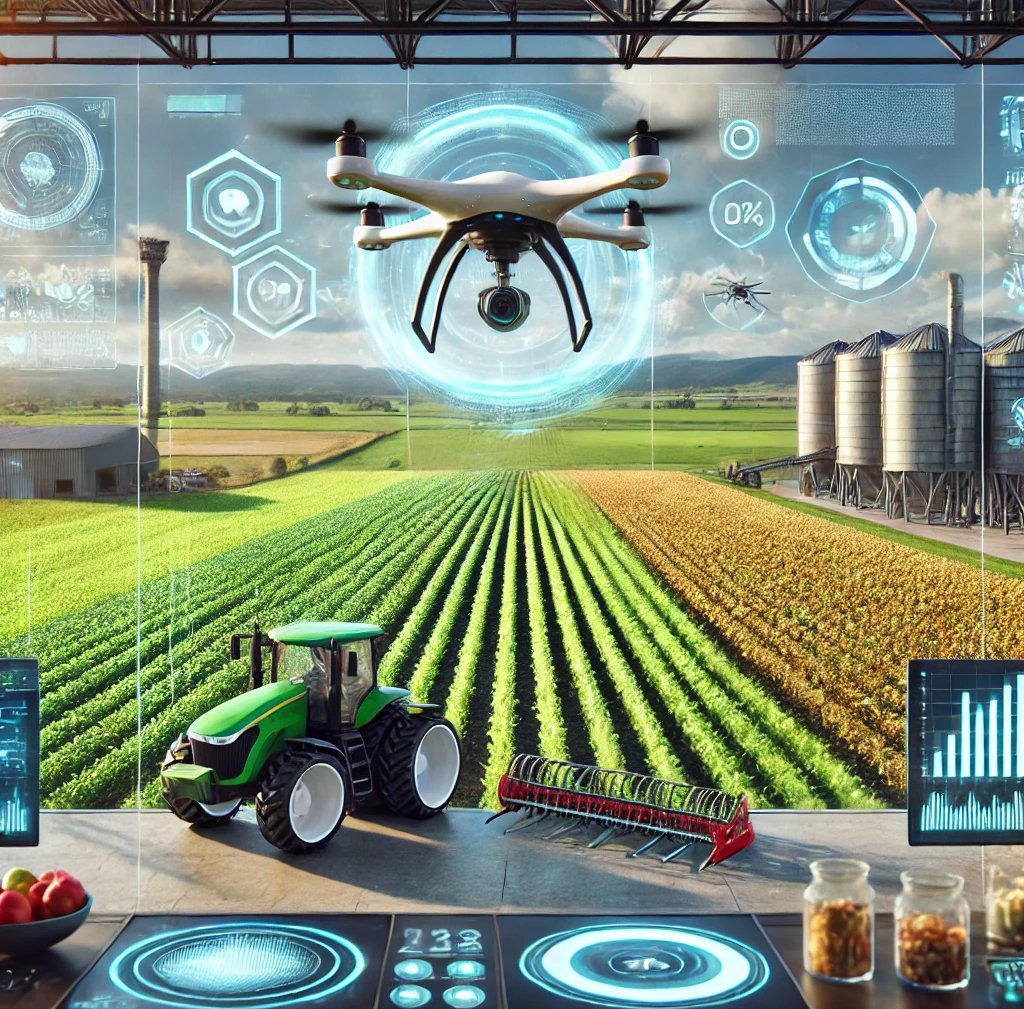AI in Agriculture: Transforming Farming for the Future
Agriculture has always been a cornerstone of human civilization, evolving with technology to meet the growing demands of an increasing population. In recent years, Artificial Intelligence (AI) has begun to revolutionize the farming industry, enhancing efficiency, sustainability, and productivity. From precision farming to autonomous machinery, AI is shaping the future of agriculture in remarkable ways.


1. Precision Farming with AI
AI-powered precision farming leverages data from drones, sensors, and satellite imagery to monitor crop health, soil conditions, and water levels. Machine learning algorithms analyze this data, allowing farmers to apply fertilizers, pesticides, and water precisely where needed. This reduces costs and minimizes environmental impact while maximizing yield.
2. Smart Irrigation Systems
Water conservation is crucial in agriculture, especially in regions facing droughts. AI-driven irrigation systems analyze weather patterns, soil moisture levels, and crop needs to optimize watering schedules. This prevents over-irrigation and ensures crops receive the right amount of water, improving sustainability and reducing waste.
3. Autonomous Machinery and Robotics
Self-driving tractors, robotic harvesters, and AI-powered seed planters are transforming labor-intensive tasks. These autonomous machines can plow fields, plant seeds, and harvest crops with minimal human intervention, increasing efficiency and reducing labor costs. AI also enhances predictive maintenance, alerting farmers before machinery failures occur.
4. Pest and Disease Detection
AI-powered image recognition systems detect plant diseases and pest infestations early, enabling farmers to take timely action. Drones equipped with AI-driven cameras scan large fields and identify problem areas, preventing widespread damage and reducing the need for excessive pesticide use.
5. Livestock Monitoring and Management
AI is also improving animal husbandry. Smart collars and sensors track livestock health, behavior, and movement, providing early warnings of diseases or distress. Machine learning algorithms analyze feeding patterns, optimizing nutrition and improving overall herd productivity.
6. Supply Chain Optimization
AI helps farmers predict market demand, optimize logistics, and reduce food waste. By analyzing historical data and current trends, AI-driven models assist in determining the best time to harvest, store, and distribute crops, ensuring maximum profitability and minimal losses.
7. Climate Resilience and Sustainable Farming
With climate change posing challenges to agriculture, AI plays a vital role in developing climate-resilient crops. AI-driven research helps breed crops that withstand extreme weather conditions, while predictive analytics assist in mitigating climate-related risks.
Conclusion
AI is revolutionizing agriculture, making farming more efficient, sustainable, and productive. From precision farming to autonomous machinery, AI-driven innovations are helping farmers meet global food demands while conserving resources. As AI technology continues to advance, the future of agriculture looks brighter than ever, ensuring food security for generations to come.